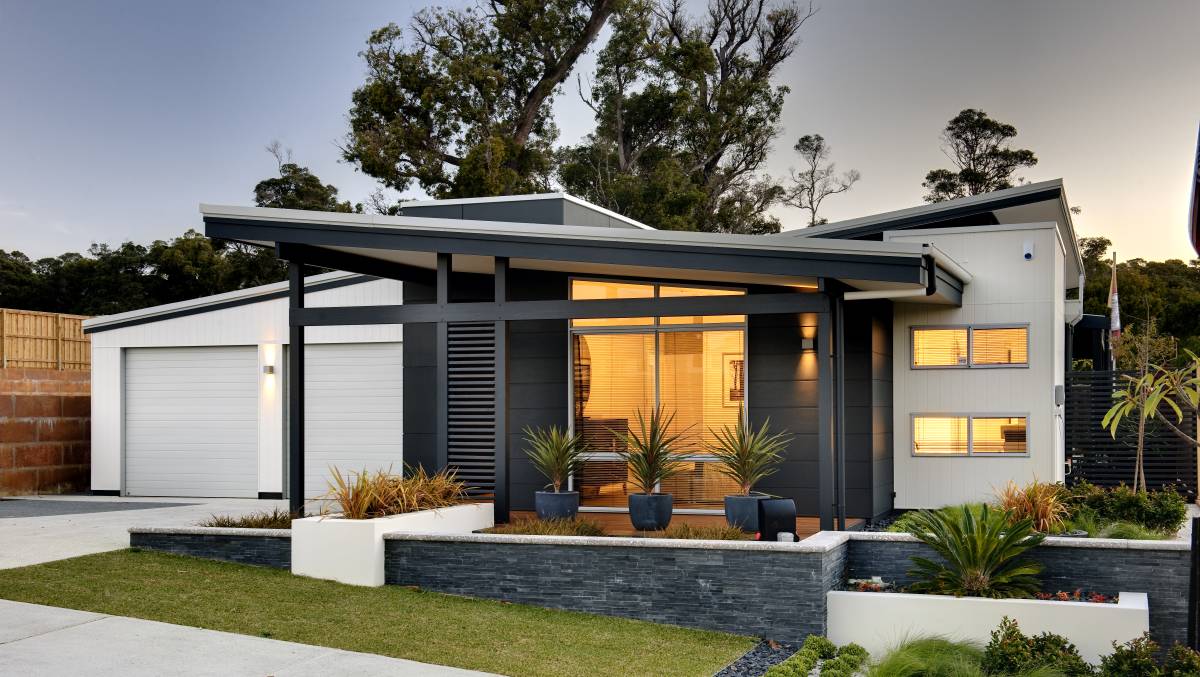‘Modern’ and ‘designer’ homes make up more than half of new build detached properties, but do we really understand what the term means? While popular home trends such as The Hamptons, Country and French Colonial have clear definitions, Modern is used to describe a number of styles that share common elements, but require specific considerations. “Generally speaking, the modern trend features clean lines, confident shapes and minimal ornamentation,” says architect and James Hardie ambassador, Joe Snell, who has worked with James Hardie to define five current contemporary home styles.
MID CENTURY MODERN This style is all about being connected to nature by using large expanses of glass and revealed structure, creating buildings that have simple silhouettes that are very aware of their surroundings. To achieve this look, it’s important to reveal how the building was constructed by exposing elements such as steel beams and cladding boards, which need to be beautifully crafted. The shadow line of Stria cladding premium fibre cement boards can be used to add detail horizontally to add breadth.
MINIMALISM It could be argued that Minimalism is the opposing stance to Mid-Century. While it ostensibly uses the same pared back design, the focus is more on looking within, and being at peace with oneself. The minimialism school of thought aims to remove distractions and has become popular in Japan for its alignment with the Zen philosophy of mindfulness and tranquility. Achieve the aesthetic by removing joins and lines with concrete floors and large panel cladding such as Matrix, as well as expanses of glass for natural lighting. Monochrome palettes, with a focus on blank white spaces are essential.
MODERN COASTAL The central themes of Modern are not constrained to metropolitan areas and Australia’s shorelines show how the trend can be combined with the coastal aesthetic. The key here is being true to both aspects, which means that this look has the biggest opportunity to create softer curved shapes. The large expanses of macro detailing and clean shapes remain, but there is also a lean toward embodying the coast. This is done through the use of blues, greys and warm wood tones.

MODERN COASTAL: While the on-trend Hamptons style incorporates beautiful detailing, the Modern version remains simple and clean.
MIXED MATERIALS A popular device to add variety to the look of a home, the mixed materials design has been used in many neighbourhoods to reduce the blandness of rows of identical homes. It can be hard to get right as there are a lot of elements to balance, so over-complication can be an issue here. The key is to approach the property with one idea or story and stick to it. For example, it could be creating the entrance as the hero, or making the building appear broader or taller.
SCANDI BARN Another look that combines tradition with modernity and is well suited to Linea weatherboards is a modern interpretation of the Scandinavian Barn. While many may think of light and bright colour palettes for Scandi Barns, they also have the potential for dark and brooding exteriors in greys and blacks with minimal window use. The basic tenants of the movement lend themselves to modern styles and include hooded windows and a strong diagrammatic house shape. Whatever your modern aesthetic, it’s important to know the specifics of your look and how to achieve them.
